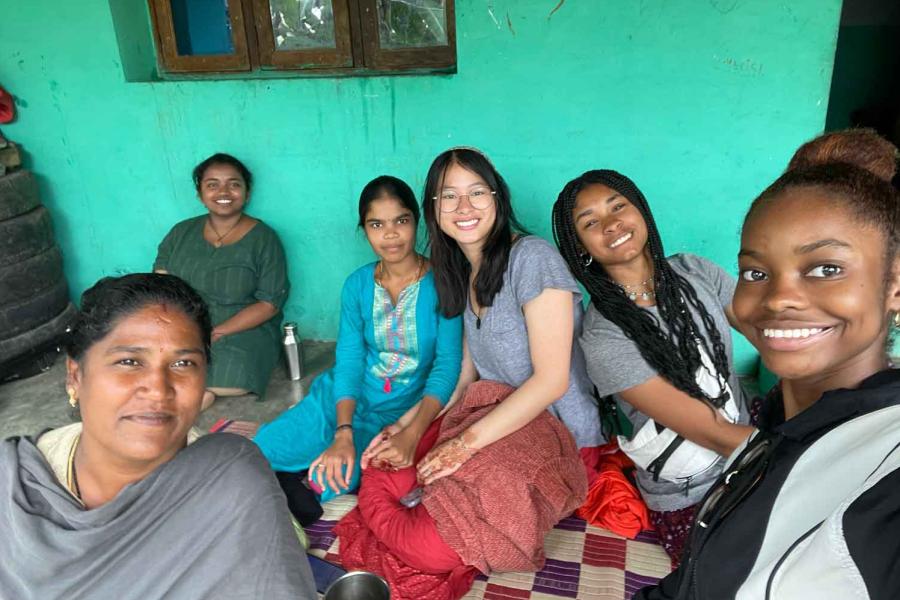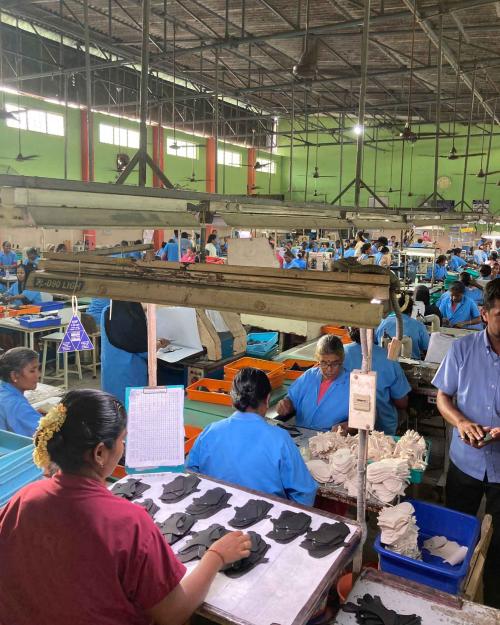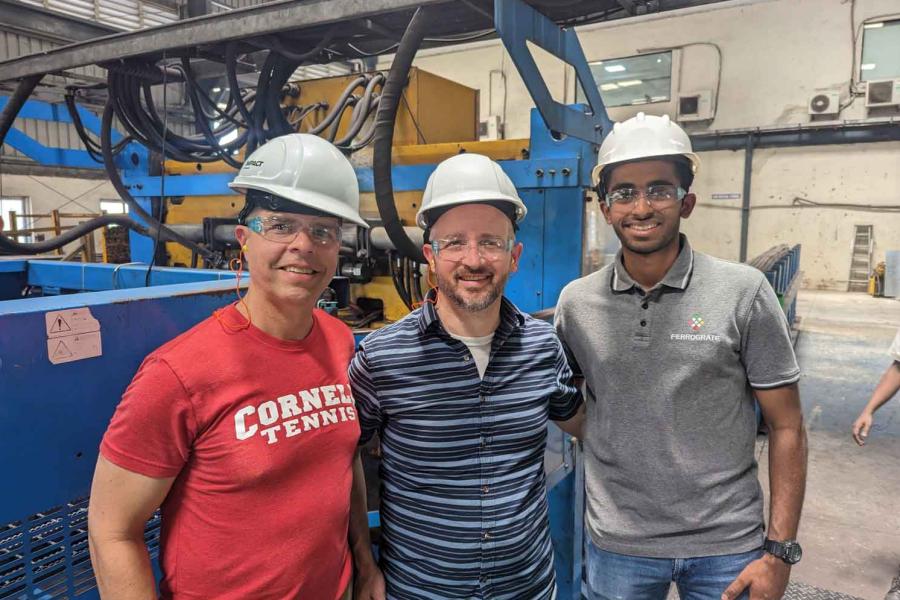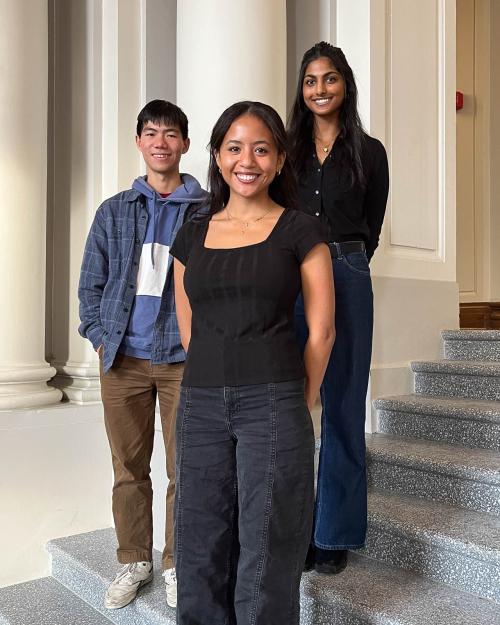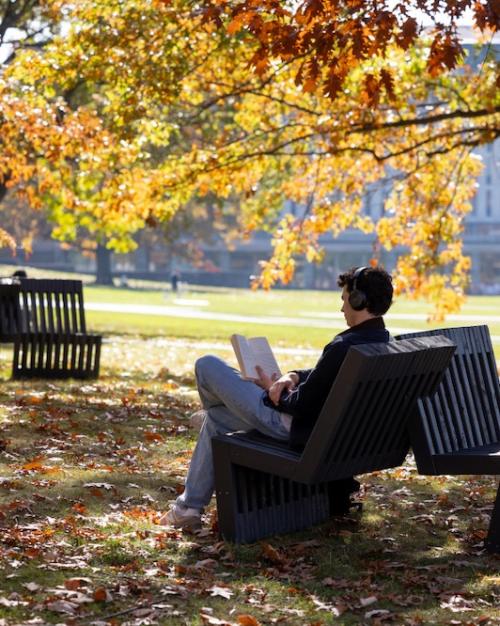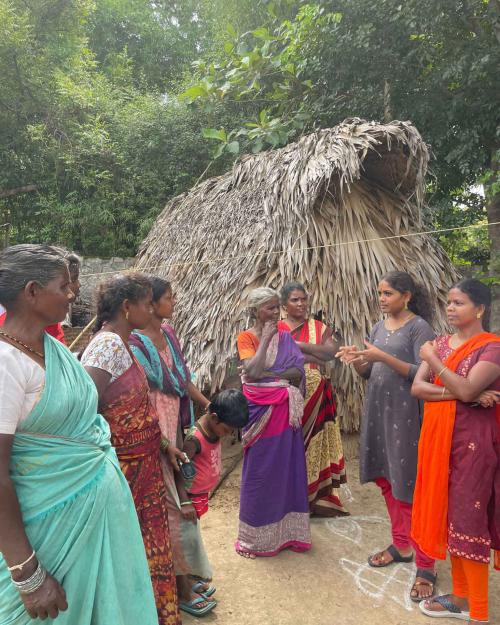On a typical day this summer, Denise Rose ’25 visits with residents of indigenous communities in Kotagiri, India, talking about their mental health concerns and the resources available to them.
“I plan to pursue a master’s of public health degree, so this hands-on experience and research is great preparation for future projects,” said Rose, a biology and society major in the College of Arts & Sciences. “The opportunity to learn and help bridge the gap between biomedicine and traditional healing is interesting to me, especially given the ongoing debate within the communities about the effectiveness of traditional healing.”
Rose received a Serve in Place Grant from the David M. Einhorn Center for Community Engagement and is working with the Cornell-Keystone Nilgiris Field Learning Summer Program. Created in 2015, the Nilgiris Field Learning Program (NFLP) is a partnership between the Keystone Foundation (an Indian non-governmental organization) and Cornell. It connects Cornell faculty and students with practitioners and community members in southern India to explore issues of sustainability, conservation, livelihoods and education.
“One of the goals of the Keystone Foundation is to achieve community and health development in indigenous communities,” Rose said. “The immersive and interactive component of the program allows us to engage with the local indigenous communities and experience Indian culture firsthand.”
Each weekday, Rose takes part in lectures about how cultural syndromes of the region – like Amok and Berdache — shape mental health. “Also, in different cultures, possession and trances are seen as an aspect of religious life, while in the Western world it is seen as a sign of mental illness,” Rose said.
When they aren’t in the classroom, Rose and other students are visiting indigenous communities like the Irular, interviewing residents and traditional healers, about their perspectives related to mental health treatment.
Students also took a trip to Chennai, India to visit The Banyan, a non-profit focused on providing patient-centered care and reintegrating homeless clients with mental health issues back into society.
Shreemann Raghavan ’25 is also working on an international project this summer, with the help of a Serve in Place grant.
Working with Garrick Blalock, associate professor in the Charles H. Dyson School of Applied Economics and Management, Raghavan has been studying how employees access benefits provided by one of India’s largest footwear manufacturers. That company is located in Ambur, India.
“Our focus was to study how the company communicates to its employees about the financial and medical benefits they provide,” he said, “and whether improving education and access to those benefits could address problems with employees such as absenteeism.”
Blalock, Raghavan and other members of the team were able to visit the factory for a few days in June, meeting workers, the managing director and the company’s chairman.
Raghavan was surprised to learn that the company provides unusual benefits, such as tutors for workers’ children who may be struggling in school, as well as college fairs, and is developing a plan for worker housing.
“This project taught me a lot about the lives of people around the poverty line,” he said. “Their motivations are different than what we might think.”
Although he’s interested in management consulting work, Raghaven said he’s also interested in creating a social enterprise one day, focusing on improving education and medical resources for poor communities.

